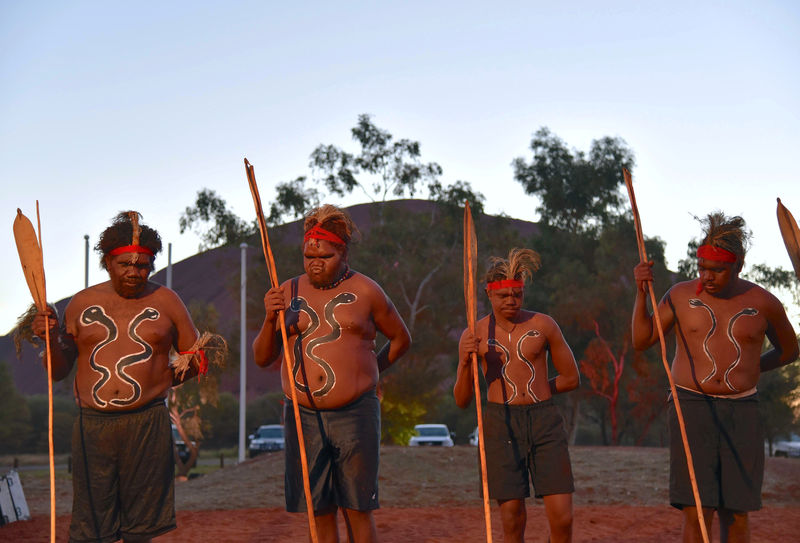Street Calls of the Week
By Colin Packham
SYDNEY, Jan 25 (Reuters) - Tens of thousands of Australians plan to mark Australia Day, Jan. 26, with mass protests, demanding the date of the national holiday be changed given its links to colonisation and the ill-treatment of indigenous Aborigines.
Australia Day marks the date the British "First Fleet" sailed into Sydney Harbour in 1788 and declared the land unoccupied, despite encountering Aborigines, and established settlements. Aborigines have occupied the Australian continent for some 50,000 years.
Aborigines refer to Jan. 26 as "Invasion Day" and Australian schools and some universities teach both views, as the debate over how to reconcile the country's past continues.
"We expect at least 10,000-12,000 people, twice as many as last year, to come out and call for invasion day to be abolished," said Aborigine Raymond Weatherall, an organiser of a rally in Sydney. Protests will held across Australia's largest cities.
More than half of all Australians support changing the date of the national holiday, a poll by The Australia Institute think tank showed last week. And analysts expect that number to rise as consciousness of the issue continues to increase.
Australian Prime Minister Malcolm Turnbull, under pressure from his conservative back bench and populist right-wing politicians such as Pauline Hanson, has said he supports celebrating Australia Day on Jan. 26.
Australia's third largest political party, the Australian Greens, has said it will spearhead a campaign to change the date of the national holiday.
"Australia must acknowledge our past. We must understand the impact on our first peoples," Richard Di Natale, senator and leader of the Australian Greens, told Reuters.
"Until we do that, we will never be able to truly reconcile our history with who we are today, a multicultural nation."
The country's 700,000 or so indigenous people track near the bottom of its 23 million citizens in almost every economic and social indicator.
Despite millions of dollars of expenditure, the government said last year its plan to improve the lives of its indigenous population was on course for failure.
